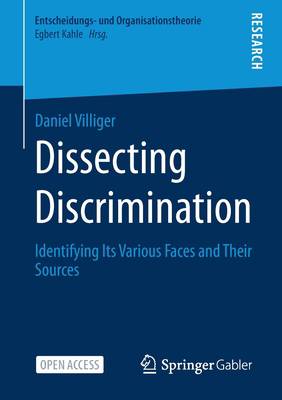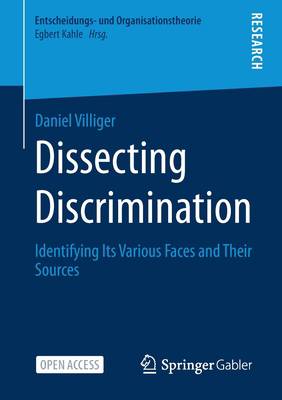
- Retrait gratuit dans votre magasin Club
- 7.000.000 titres dans notre catalogue
- Payer en toute sécurité
- Toujours un magasin près de chez vous
- Retrait gratuit dans votre magasin Club
- 7.000.000 titres dans notre catalogue
- Payer en toute sécurité
- Toujours un magasin près de chez vous
Description
This Open-Access-book examines the phenomenon of discrimination using a descriptive approach. Discrimination is omnipresent, whether it is people who discriminate against other people or, more recently, also machines that discriminate against people. The first part of the analysis employs decision theory on discrimination, leading to two fundamental subtypes: taste-based discrimination and statistical discrimination. The second part links taste-based discrimination to social identity theory, demonstrates that not all taste-based discrimination is ultimately statistical discrimination, and reveals the evolutionary origins of our tastes. The third part surveys how people get their beliefs for statistical discrimination and thereby shows that they often deviate from Bayesianism: they have inherent prior beliefs and do not exclusively update their beliefs according to Bayes' law. Additionally, the analysis of belief formation highlights the importance of the learning environment. Thelast part reassembles the previously dissected aspects of discrimination, presents a new descriptive model of discrimination, and lists five implications for a normative theory of discrimination.
Spécifications
Parties prenantes
- Auteur(s) :
- Editeur:
Contenu
- Nombre de pages :
- 234
- Langue:
- Anglais
- Collection :
Caractéristiques
- EAN:
- 9783658345686
- Date de parution :
- 29-08-21
- Format:
- Livre broché
- Format numérique:
- Trade paperback (VS)
- Dimensions :
- 148 mm x 210 mm
- Poids :
- 299 g







